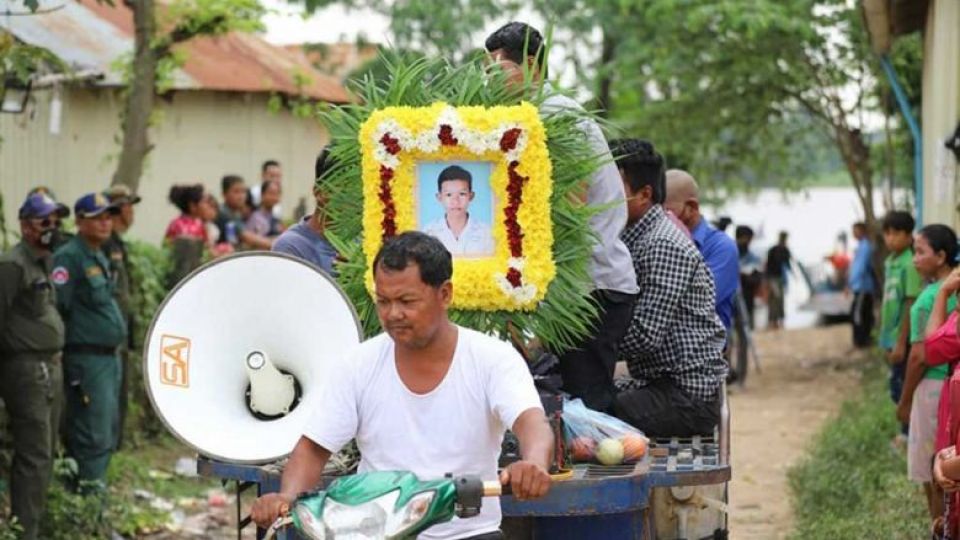October 19, 2022
PHNOM PENH – Three suspects involved in the sinking of a ferry that killed 11 students in Kandal province were temporarily released on October 17, while authorities continue to investigate the case.
Provincial police chief Chhoeun Sochet said the three suspects, two of them women, were summoned for questioning on October 15 after a ferry sank in Loeuk Dek district’s Kampong Phnom commune on October 13. The two women – Chheng Vanna, 52, and Chheng Srey Neang, 69 – are siblings who owned the vessel. The third, Thet Chanthy, 15, was the operator of the boat.
“The prosecutor has allowed them to return home temporarily. This does not mean that they will not be charged – the case is proceeding in accordance with legal procedures,” Socheat said.
Members of the public, civil society organisations and several politicians are paying close attention to the case, with some suggesting that the relevant local authorities also be held accountable.
Yim Sinan, who previously worked in South Korea, took to social media comparing the incident to one which occurred near Jindo, South Korea, nearly a decade ago.
“In 2014, the Sewol ferry from Incheon to Jeju sank in the sea near Jindo. Of the 476 passengers, only 172 survived. Prosecutors arrested the ferry owners and other stakeholders. Civil society and non-governmental parties demanded compensation and required the government to take full responsibility for the weaknesses of its leadership,” he wrote.
Sinan asked which officials would be brave enough to apologise and take responsibility. He likened it to the tragic stampede on Koh Pich, also known as Diamond Island, which claimed 353 lives during the Water Festival in Phnom Penh in 2010, when compensation of five million riel ($1,225) was paid to each family of the victims.
Moeun Tola, executive director of the Centre for Labour Alliances and Human Rights (CENTRAL), said that at a glance, the boat owner was responsible for the deaths.
“But we need to look more deeply. Did the authorities require them to have safety equipment and was the boat inspected to ensure it met safety standards? If this was not the case, then members of the relevant authorities, from the village to the provincial level, should also be held accountable.
“If they allowed such a business to continue until the accident occurred, it is not right that the burden of the tragedy be put entirely on the business’ owners and operators,” he said.
Kandal provincial governor Kong Sophorn declined to comment on October 18, saying he was in a meeting.
Reached for comment on October 18, government spokesman Phay Siphan said: “We welcome criticism, but will not accept blame without a thorough investigation. We are working to meet the needs of all parents, schools and relevant institutions, to ensure the safety of all students and commuters.”
Regarding the comparison between the South Korean and Cambodian authorities, he said: “Cambodia is different from South Korea, especially in terms of income and compensation. We cannot compare the standards of the two nations.”
On October 17, Save the Children Cambodia called on institutions across the country to implement the Joint Framework on Safe Schools to ensure the safety of children both inside and outside of class, including their journeys between school and home.
In the aftermath of the incident, Loeuk Dek district authorities issued a directive requiring boat owners to provide flotation devices for all passengers. They now strictly prohibit overcrowding and the use of vessels which were not fit for purpose.


